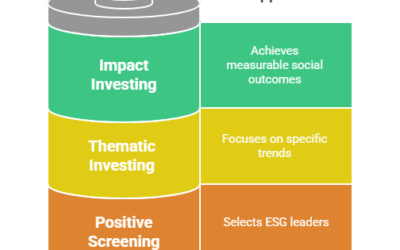Finding clients as a financial planner isn’t just about having the right certifications—it’s about building trust, showing value, and positioning yourself where the right people can find you. Whether you’re just starting out or looking to grow an established book of business, these proven strategies can help you consistently attract and retain new clients.
1. Identify Your Ideal Client Profile
Before you market yourself, you need to define who you’re trying to reach. Are you targeting:
-
High-net-worth individuals?
-
Young professionals starting to build wealth?
-
Small business owners with complex financial needs?
-
Retirees looking to manage distribution and estate planning?
Creating a clear client persona allows you to tailor your messaging, service offerings, and outreach strategies. The more specific, the better.
2. Leverage Referral Networks
Referrals remain one of the strongest sources of new business for financial planners. To generate more:
-
Ask satisfied clients for introductions, not just testimonials.
-
Build relationships with CPAs, attorneys, and mortgage brokers—pros who already work with financially engaged individuals.
-
Join professional organizations and local networking groups where peer-to-peer referrals are common.
A warm introduction beats a cold call every time.
3. Build a Local Presence Through Educational Events
Workshops, webinars, and speaking engagements are great ways to establish credibility and meet potential clients face-to-face. Focus on offering value with topics like:
-
“Tax Planning for Small Business Owners”
-
“Financial Basics for Young Professionals”
-
“How to Avoid the 5 Most Common Retirement Mistakes”
Promote your events through social media, email, and community calendars. You don’t need a big audience—just the right one.
4. Establish a Professional Online Footprint
Your website and social presence should reflect your professionalism and expertise. At minimum, make sure you have:
-
A modern website with a bio, service overview, and clear contact form
-
An active LinkedIn profile that shares thought leadership and client-relevant insights
-
Google Business Profile to show up in local searches
Consider adding an FAQ section or short videos that address common financial questions—this builds trust before you even speak.
5. Use Email Marketing to Stay Top of Mind
Prospects might not need your services today, but that doesn’t mean they won’t tomorrow. Build an email list and send helpful, relevant content consistently:
-
Monthly newsletters with market updates or planning tips
-
Drip campaigns that explain your approach to new subscribers
-
Event invites or webinar replays
This keeps you in the conversation and positions you as a go-to resource when the time is right.
6. Partner with Niche Communities
Some of the most effective planners focus on narrow niches—like physicians, divorcees, or tech professionals. Look for industry-specific groups (online or in person) and offer tailored services that solve their unique problems.
For example:
-
Sponsor a podcast or webinar aimed at startup founders
-
Write for a newsletter targeting independent consultants
-
Attend conferences or conventions where your ideal clients gather
Expertise in a niche = faster trust + better referrals.
7. Consider Paid Lead Generation (If It Makes Sense)
Platforms like SmartAsset, WiserAdvisor, or even LinkedIn Ads can offer a jumpstart if you’re building momentum. Just make sure:
-
Your profile or landing page is polished and credible
-
You have a follow-up system in place to convert leads into real conversations
-
The math makes sense (cost-per-lead vs. client lifetime value)
This isn’t the best fit for everyone, but it can be a valuable tactic if you’re strategic.
8. Don’t Underestimate Consistency
Building a strong financial planning business doesn’t happen overnight. The most successful planners put consistent effort into outreach—even during busy seasons.
-
Block time weekly for marketing or client development
-
Track where your best clients are coming from
-
Regularly revisit and refine your strategy based on results
Final Thoughts: It’s About Trust, Not Tactics
At its core, financial planning is a relationship business. Clients choose planners who make them feel understood, not just sold. Focus on providing value, solving real problems, and building genuine connections—and the clients will follow.




